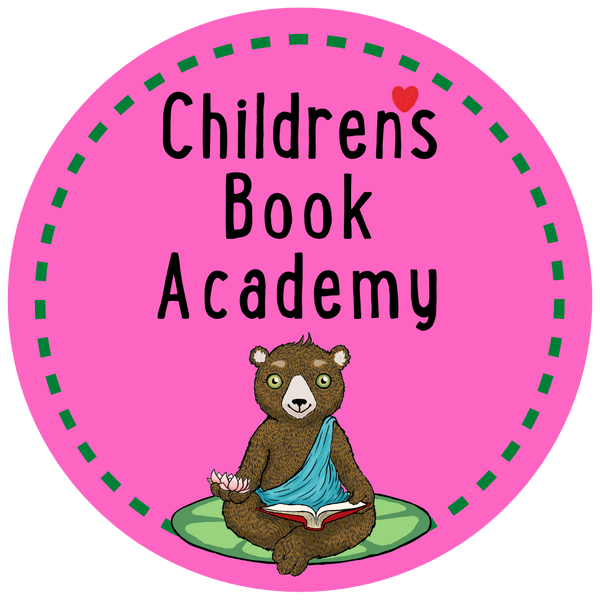by Dr. Debra Collins
When I was a child, two different ice cream trucks regularly visited my neighborhood. We eagerly gobbled goodies from both, but we announced their arrivals differently. Truck A sparked shrieks of delight. Truck B set off a singsong ditty among us that rhymed the name of the brand with phrases proclaiming this ice cream tasted bad and made us sick. I joined in, never questioning how the song came about.
One day, as Truck B arrived, I was alone on the porch when the other children in the neighborhood started singing. As the scene unfolded before me, suddenly I saw and heard it through the eyes and ears of the truck driver. My heart hurt. I realized how awful that nice man must feel, being greeted by that song. Never again did I sing it.
That moment was a step in my development of Social Awareness, which includes capacities for taking another’s perspective, feeling compassion, showing concern for others’ feelings, and demonstrating empathy.
One day, as Truck B arrived, I was alone on the porch when the other children in the neighborhood started singing. As the scene unfolded before me, suddenly I saw and heard it through the eyes and ears of the truck driver. My heart hurt. I realized how awful that nice man must feel, being greeted by that song. Never again did I sing it.
That moment was a step in my development of Social Awareness, which includes capacities for taking another’s perspective, feeling compassion, showing concern for others’ feelings, and demonstrating empathy.
|
Originally released by Mulberry Books in 2008, Kevin Henkes’ book was re-released by Greenwillow Books in 2020 as Chrysanthemum: A First Day of School Book for Kids. Geared for preschool and kindergarten children, it is highly popular, listing among the top 100 books in Amazon’s categories for Children’s Self-Esteem and Children’s School Issues.
The story begins with the delighted parents of a newborn mouse. They name her Chrysanthemum, a perfect name to express how perfect she is. Little Chrysanthemum loves her name and, by extension, loves herself. |
When her first day of school arrives, she is brimming with confidence and enthusiasm. But her peers make fun of her name. From this point, the story contrasts how Chrysanthemum feels when she is loved and supported at home with how she feels when teased and belittled at school. The words and illustrations show that day by day, her suffering intensifies. On the first morning of school, Chrysanthemum puts on a sunny outfit and moves joyfully toward her destination. On the second day, she wears extra-comfortable clothes and dallies along. On the third day, she fills her pockets with good luck charms and takes the longest route to school. Chrysanthemum “wilts” as she comes to believe her perfect name is DREADFUL. She feels temporary relief at home, but her worries plague her dreams.
Yikes! The clear, compelling depictions of Chrysanthemum’s plight effectively kindle the reader’s compassion and empathy. Feeling for poor, innocent Chrysanthemum, the reader yearns for her peers to stop tormenting her. Yet no one calls them out on their hurtful words and actions. The classroom teacher’s only comment to the lead bully is a matter of fact, “Thank you for sharing.” At home, Chrysanthemum’s parents reassert, “your name is perfect.” They say that her classmates are just jealous. Chrysanthemum herself suffers in silence.
This builds to a climax with the entry of Ms. Twinkle, the much-admired music teacher. Ms. Twinkle casts Chrysanthemum as a daisy in an upcoming show. Immediately the bullies, who received more enviable roles, erupt in a barrage of taunting chants.
Still, even Ms. Twinkle does not chastise Chrysanthemum’s peers. Instead, she announces that like Chrysanthemum, her own first name is a long, flower name. Plus, she’s expecting a baby and thinks Chrysanthemum would be a perfect name for a baby girl.
With these words from the esteemed Ms. Twinkle, Chrysanthemum is restored. She “blooms.” Suddenly the bullies see Chrysanthemum through a new lens, adopting Ms. Twinkle’s view. Now they try to change their own names to flower names.
WAIT A MINUTE, you might be thinking. What happened here? Aren’t we writers repeatedly instructed to ensure that our main character has agency? That their trials promote the insight and skills they need to solve their own problem? Chrysanthemum just wilts or blooms according to what happens around her. And those bullies – they change their behavior, but do they ever realize how much they hurt Chrysanthemum? Are they simply, naively pivoting just to please Ms. Twinkle?
This is all worth exploring. When you write your own story to promote perspective-taking and compassion, perhaps you will choose to incorporate such elements.
Meanwhile, Kevin Henkes’ story, without didactic lecturing or overt modeling, masterfully evokes perspective-taking and compassion in the reader.
Yikes! The clear, compelling depictions of Chrysanthemum’s plight effectively kindle the reader’s compassion and empathy. Feeling for poor, innocent Chrysanthemum, the reader yearns for her peers to stop tormenting her. Yet no one calls them out on their hurtful words and actions. The classroom teacher’s only comment to the lead bully is a matter of fact, “Thank you for sharing.” At home, Chrysanthemum’s parents reassert, “your name is perfect.” They say that her classmates are just jealous. Chrysanthemum herself suffers in silence.
This builds to a climax with the entry of Ms. Twinkle, the much-admired music teacher. Ms. Twinkle casts Chrysanthemum as a daisy in an upcoming show. Immediately the bullies, who received more enviable roles, erupt in a barrage of taunting chants.
Still, even Ms. Twinkle does not chastise Chrysanthemum’s peers. Instead, she announces that like Chrysanthemum, her own first name is a long, flower name. Plus, she’s expecting a baby and thinks Chrysanthemum would be a perfect name for a baby girl.
With these words from the esteemed Ms. Twinkle, Chrysanthemum is restored. She “blooms.” Suddenly the bullies see Chrysanthemum through a new lens, adopting Ms. Twinkle’s view. Now they try to change their own names to flower names.
WAIT A MINUTE, you might be thinking. What happened here? Aren’t we writers repeatedly instructed to ensure that our main character has agency? That their trials promote the insight and skills they need to solve their own problem? Chrysanthemum just wilts or blooms according to what happens around her. And those bullies – they change their behavior, but do they ever realize how much they hurt Chrysanthemum? Are they simply, naively pivoting just to please Ms. Twinkle?
This is all worth exploring. When you write your own story to promote perspective-taking and compassion, perhaps you will choose to incorporate such elements.
Meanwhile, Kevin Henkes’ story, without didactic lecturing or overt modeling, masterfully evokes perspective-taking and compassion in the reader.
|
As a school psychologist, I’ve written countless reports and presentations outlining challenges facing children and how to provide help and support. This required translating complex concepts of learning, social, emotional, and impulse-control difficulties into simple terms. My published work in that arena includes a relaxation-training curriculum, articles, and book chapters. My children's book manuscripts reflect the children I’ve assisted, my New York/Jewish background (especially tales from my Dad's Brooklyn boyhood) and my quirky sense of humor.
- Dr. Debra Collins |









